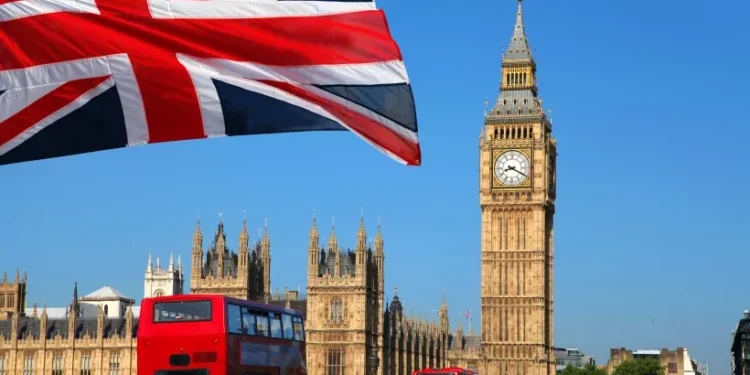The UK’s economic downturn has been officially confirmed, marking the nation’s entry into a recession.
According to the latest data from the Office for National Statistics (ONS), the Gross Domestic Product (GDP) experienced a decline of 0.3% in the fourth quarter of 2023, following a 0.1% contraction in the preceding quarter.
This sequential downturn meets the technical criteria for a recession, characterised by two consecutive quarters of negative economic growth. The fourth quarter’s performance was impacted significantly by downturns in key sectors such as manufacturing, construction, and wholesale, which contributed heavily to the overall decline in GDP.
Political Implications amid Economic Challenges
The timing of the recession announcement poses a significant challenge for Prime Minister Rishi Sunak, especially with the upcoming general election. The economic downturn could further influence voter sentiment as the governing Conservatives lag behind the opposition Labour Party in polls.
According to Capital Economics analyst Ruth Gregory.
- “The news that the UK slipped into technical recession in 2023, will be a blow for the prime minister on a day when he faces the prospect of losing two by-elections.
- “But this recession is as mild as they come and timely indicators suggest it is already nearing an end.”
The Prime Minister’s commitment to economic growth now faces scrutiny, as does the Conservative Party’s ability to retain its strongholds in the face of by-elections in Wellingborough and Kingswood. The economic stagnation underscores Sunak’s administration’s hurdles as it strives to navigate through a period of heightened inflation and a persistent cost-of-living crisis.
Outlook and Responses to Economic Downturn
Despite the bleak economic indicators, some analysts and government officials remain optimistic. Finance Minister Jeremy Hunt highlighted the challenges of high inflation and interest rates but suggested that the economy might be on the brink of recovery.
Hunt noted:
- “While interest rates are high – so the Bank of England can bring inflation down – low growth is not a surprise.
- “But there are signs the British economy is turning a corner; forecasters agree that growth will strengthen over the next few years, wages are rising faster than prices, mortgage rates are down and unemployment remains low.
- “Although times are still tough for many families, we must stick to the plan – cutting taxes on work and business to build a stronger economy.”
With forecasts predicting stronger growth, rising wages, and a stabilising job market, there is hope that the UK’s economic trajectory could improve.
However, the opposition criticises the government’s handling of the economy, pointing to the prolonged economic decline as evidence of policy failure. As the nation grapples with inflationary pressures and the impact of global events, the focus remains on strategic measures to stimulate growth and mitigate the recession’s effects on families and businesses across the UK.














